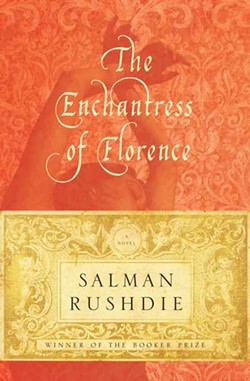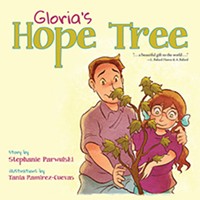It's risky if irresistible business to decipher the work of any artist -- actor, writer, painter, whatever -- through the lens of their personal lives.
That said, it can be informative. Take Salman Rushdie, who, like so many authors, decries reading his novels as windows into his personal travails. Then again, what else could a cunning fabulist do but honor Shakespeare by protesting too much? Soon after Rushdie became the target of an Iranian death sentence, or fatwa, over alleged blasphemies in his 1988 novel The Satanic Verses, he went into hiding, constantly shuttled among protected houses while separated from his family.
Soon enough, Rushdie published a poignant, delightful novel depicting the miraculous healing power of art, Haroun and the Sea of Stories. It was dedicated to his son, Zafar, and offered, in the guise of alter ego the Shah of Blah, a compelling answer to a question posed by 11-year-old Haroun in the book: "What's the point of telling stories that aren't even true?"
Rushdie has often spoken of the immigrant's experience and how his move to England from India as a young man came to define his work, particularly the Booker Prize-winning Midnight's Children and Satanic Verses.
He's less enthusiastic about the perceived intertwining of fact and fiction used in critical volleys lobbed at him over his 2001 novel, Fury. It tells the story of a successful middle-aged immigrant Londoner who abandons his wife and children in pursuit of trophy types in New York. That the novel disappointed as a work of fiction was exacerbated by its real-life parallel: Rushdie had, in essence, done the same thing, swapping his third wife for a Cosmo cover girl, Padma Lakshmi, who just happened to be 23 years his junior.
In 2004, Lakshmi, the future Top Chef co-host, married Rushdie, a pairing of young bombshell and middle-aged intellectual that led tabloids to bill the pairing as "Beauty and the Beast." Rushdie was not amused. In a fitting bit of celebrity gossip symmetry, the couple met at a party hosted by the expatriate Manhattan queen of upper-crust tattling herself, Tina Brown.
With that back story in mind, consider The Enchantress of Florence the perfect bookend to Rushdie's Fury furor. In his latest book, he fixates on common themes (the intersection of East and West, the power of storytelling and storytellers, the perils of religious intolerance) while relating a relentlessly meandering tale of female obsession.
The enchantress of the title is, subtlety aside, a descendant of Genghis Khan. She is the 15th century version of an icy bombshell villainess. Angelina Jolie would play her in the movie version.
At 17, the enchantress, known as Lady Black Eyes, sweeps the Shah of Persia (what became, of course, modern-day Iran; give Rushdie credit for wielding a devilish sense of humor) off his sword.
Though Rushdie has already delivered sworn literary testimony, in the form of a recent New York Times profile, that the enchantress has nothing to do with the ex-wife who unceremoniously dumped him last summer, his new novel's obsession with beauty and deception make that assertion difficult to swallow. Consider passages such as this one:
"Afterward, when he had lost her forever, Shah Ismail spoke of sorcery. There was an enchantment in her gaze that was not wholly human, he said: a devil was in her, and had goaded him to his doom. 'That a woman so beautiful should not be tender,' he said to his deaf-mute body-servant, 'this I did not expect. I did not expect her to turn away from me so casually, as if she were changing a shoe. I expected to be beloved ...'"
For an author such as Rushdie, speculative conflations of his art and life are ironic frustrations. After all, his stories almost always include meditations on the power of fables, myths and legend -- and often make the point that the truth of rumors and tales means less than the perception of them as truth.
Whether the specter of Lakshmi (Kung Fu Padma, anyone?) looms or not, this novel remains very much a mixed bag. It revolves around a mysterious blond Florentine traveler and teller of tales, known as the Mughal of Love, who arrives at the Hindustan kingdom of Sikri, ruled by Akbar the Great. The Mughal of Love says he has one story he must tell and he will tell it only to Akbar, the emperor. The story will determine whether he lives or dies.
Rushdie's affection for, and allusions to, Scheherezade are familiar. The problem here is that the long, winding tale told by the Mughal of Love echoes Paul Simon: Why am I so soft in the middle? A blizzard of bodies and battles leaves the reader parched for a narrative oasis; that is, something to push the story forward instead of sideways.
To be sure, Rushdie remains inventive and retains prodigious abilities. He can also still deliver a clever punch: "And error could be handed down as easily as virtue." This time around, though, it just feels more like piling pun upon allusion upon parody for the sake of doing so rather than in service to the story. Historical cameos extended and otherwise by everyone from Machiavelli to the Medicis provide occasional sparks ("That the end justifies the means," spouts one character, recalling a phrase of his boyhood friend, the calculating and obscure Machiavelli).
An Ottoman army includes four Swiss giants Rushdie dubs Otho, Botho, Clotho and d'Artagnan, a winking nod to Dumas and his musketeers. All too often, though, the playful, focused storyteller gives way to the literary equivalent of ball-hogging. Too many characters trade in anachronistic dialogue, peppered with contemporary profanity and stylings.
The novel's unintentionally all-too-fitting denouement includes a scene wherein two royal queens converse with an imaginary imperial lover about the ghost of a forgotten princess who is, in fact, Akbar's great aunt. Except that, we soon learn, one phantom has replaced another.
It takes a mighty Mughal indeed willing to suspend that much disbelief.
The Enchantress of Florence by Salman Rushdie
$26, Random House, 355 pages
Latest in Books
More by Erik Spanberg
-
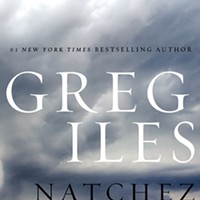
Book review: Natchez Burning
Jul 2, 2014 -
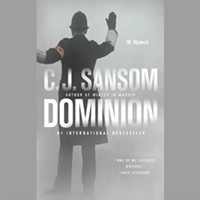
Book review: Dominion
May 16, 2014 -
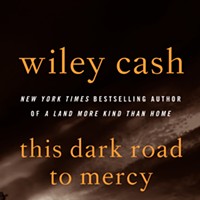
Book review: Wiley Cash's This Dark Road to Mercy
Mar 21, 2014 - More »
Calendar
-

WHISKEY TASTING: VIRGINIA HIGHLANDS WHISKY @ Elizabeth Parlour Room
-

NEW WINDOW GALLERY-Pat Rhea-ACRYLIC PAINTINGS-April 05-30 2024 VALDESE, NC 28690 @ New Window Gallery/Play It Again Records
- Through April 30, 12 p.m.
-
An Evening With Phil Rosenthal Of "Somebody Feed Phil" @ Knight Theater
-
Kountry Wayne: The King Of Hearts Tour @ Ovens Auditorium
-

Trap & Paint + Karaoke @ Zodiac Bar & Grill

